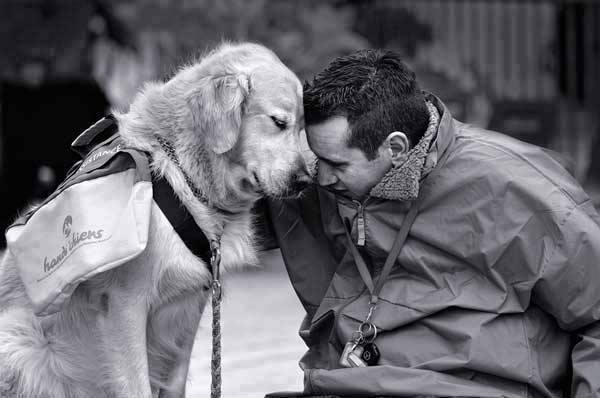Who loves more, cats or dogs? Science tries to give an answer
A research conducted by the neuro-economist Paul Zak has tried to determine who is, amongst the cat and dog, the most affectionate animal to the master.
The result seems to play in favor of dogs who produce a greater amount of oxytocin, the so-called "hormone of love" when they play with their masters.
The study analyzed 20 man-animal pairs: 10 dogs and 10 cats, along with their masters.
Starting from the fact that the oxytocin neurotransmitter is strongly involved in affection and attachment (eg mother and puppy), and cats are generally more independent of dogs, Zak has tried to determine whether the levels of the substance were different during interaction With the master.
The researcher took samples of animal saliva before and after playing with the masters, and measured the levels of oxytocin. It is not the first time that such studies are being carried out; another research published in Science has determined that both dogs and their mothers release oxytocin while looking into the eyes.
In other words, your dog loves you, and you love him. Zak's studio, however, is the first to tackle the subject in cats, and has been included in a BBC documentary (Cats v Dogs).
On average, dogs produce about 5 times more cats oxytocin after playing with their human companions, and the levels of this hormone in their saliva increase by 57.2% compared to the more contained 12% of cats.
In addition, only half of the cats tested had actually increased levels of this molecule in the saliva. Although the study is not to be taken in the letter, and therefore claim that "The dogs want 5 times better for the cats master", the result can be a starting point.
Generally, cats are more lonely and independent of dogs - the wolf, the species from which dogs have developed, are highly social animals that live and hunt in a pack, unlike cats that often do not form groups. Oxytocin has a role in cementing social bonds in wolves and dogs, as has been shown in several studies, and is also effective in the relationship between dog and master. In cats, on the contrary, ties with the observed master were generally less strong.
However, the study has limitations; First of all, it took place in the lab, and being the cats that are heavily territorial and home-loving cats, it may be stressed and this has affected the results of the study. However, it has to be said that oxytocin has been linked to stress control, at least in rodents, and its production though minimal could have alleviated it.
The study is in any case a nice research, which is probably not too serious; The same role as oxytocin hormone is actually more complex, and should not be reduced to the only definition of "hormone of love".
This hormone, in fact, is involved in a large number of physiological and behavioral processes, from trust between individuals to milk production after childbirth.






Dogs all the way!!!!
This post recieved an upvote from minnowpond. If you would like to recieve upvotes from minnowpond on all your posts, simply FOLLOW @minnowpond
Great post! Just a small tip, there is a "more" too much in the title. So you can edit it!
Oh, thank you very much!
🗅
I like cats...
Unconditional love from a dog is something that can't be likened to or replaced <3